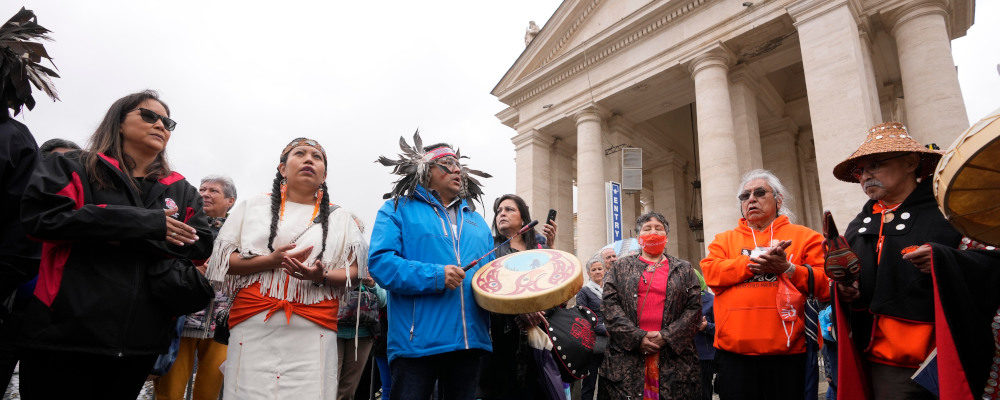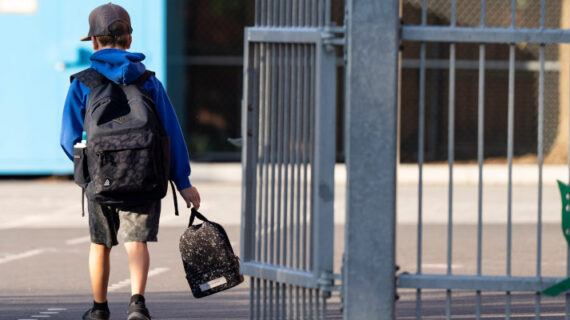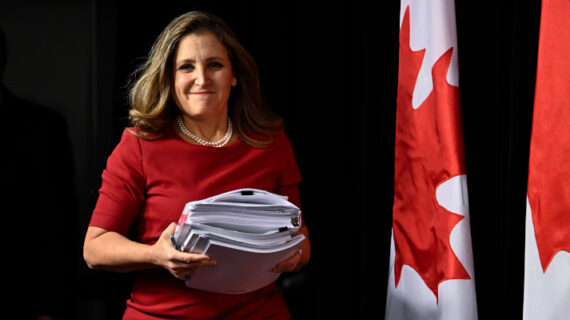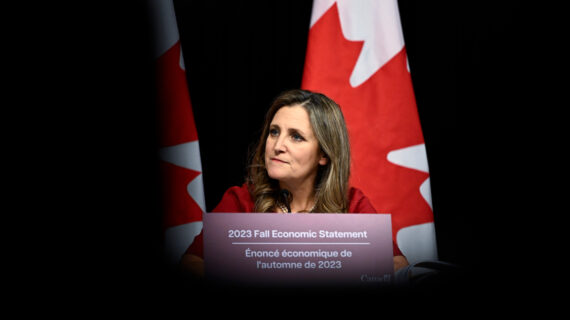Religious holidays, like Good Friday, can be tricky in a pluralist society. Politicians typically tweet out innocuous, carefully worded congratulatory messages, which mostly make news when they’re messed up. Most of us (including the 80 percent who never enter a house of worship save for weddings or funerals) try to be polite but don’t think much about the day’s meaning. Getting a public holiday is a bonus, creating an opportunity for whatever weekend rituals we’ve developed with family or friends.
Most of us have a vague sense of the biblical narrative behind Good Friday. It’s the day roughly 2,000 years ago when Jesus—God as a human—was crucified, dying on behalf of sinful humanity. It comes two days before Easter, the day of Jesus’ resurrection, through which he conquered sin and death, opening the path for forgiveness and reconciliation with God.
Vox magazine is currently running a series on forgiveness, something they call “an elusive goal” with the “potential for catharsis.”1America’s struggle for forgiveness The first three articles deal with finding personal forgiveness in the context of continuing public injustice, the limits of forgiveness, and breaking the cycle of wanting forgiveness but not receiving it. As we’ve learned in South Africa and in part in Canada with some small progress on Indigenous issues, truth and reconciliation are key components. Problems must be acknowledged and the pain they caused must be expressed and heard. While we’ve identified these ingredients, for the most part, forgiveness in public policy remains elusive.
Forgiveness and reconciliation are concepts with deep relevance to today. Consider the Pope’s apology for the Catholic Church’s role in Canada’s residential schools.2“More than 25 years after the last residential school closed in Canada, Pope Francis has said he’s sorry for the grave and lasting harm caused by some clergy members who operated the church- and state-sponsored residential school system. In a livestreamed audience with more than 190 Indigenous survivors, elders, knowledge keepers, youth and leaders, the Pope said he was ‘deeply grieved’ by the stories of abuse, hardship and discrimination shared by survivors throughout the week.” https://globalnews.ca/news/8727423/pope-francis-apologizes-residential-schools-vatican-delegation/ We could easily add issues of race, gender, class, and many others. These are “wicked problems” because they have no tame solution.3“In 1973, design theorists Horst Rittel and Melvin Webber introduced the term ‘wicked problem’ in order to draw attention to the complexities and challenges of addressing planning and social policy problems. Unlike the ‘tame’ problems of mathematics and chess, the wicked problems of planning lack clarity in both their aims and solutions. In addition to these challenges of articulation and internal logic, they are subject to real-world constraints that prevent multiple and risk-free attempts at solving.” https://www.stonybrook.edu/commcms/wicked-problem/about/What-is-a-wicked-problem I wonder whether an unspoken aspect of these problems is that without forgiveness, no solution seems possible. After all, in secularized society, we don’t really know how to do public forgiveness. We do apologies and expect reconciliation. But, doesn’t the road from apology to reconciliation travel through forgiveness?
Forgiveness is about restoration of relationship. Christians believe sin broke humans’ relationship with God. At the heart of Good Friday is God taking the initiative to restore that relationship. Acceptance of an apology opens the path to reconciliation. That involves restitution, but without the restoration of relationship, a penalty could be paid repeatedly without effect.
These days, we tend to see each other as oppressor and victim. This makes apologies and restitution just parts of a negotiation process. True forgiveness is not negotiation; it’s recognition of the dignity and worth of another. It’s not simply the settling of a historic bill.
To be sure, there are signs of hope. In response to the Pope’s recent words, Chief Gerald Antoine, head of the Assembly of First Nations delegation, responded that “We accept this apology.”43 Key Aspects of Pope Francis’ Apology to Canadian Indigenous People Similarly in 2008, after Prime Minister Harper apologized in the House of Commons, then Assembly of First Nations National Chief Phil Fontaine responded, “We heard the government of Canada take full responsibility…we heard Canada say it is sorry.”5PM cites ‘sad chapter’ in apology for residential schools
But why don’t these close the books? Some, like Canadian author Madeline Ashby, say they can’t. Writing in 2016, Ashby observes the range of severe challenges Canada’s Indigenous communities still face, concluding that “until there is change, Canada will just have to keep apologizing.”6Canada’s apologies without action
In an era where identity is paramount and a person’s worth in public is measured by affirmations of their feelings, closure is next to impossible. Tim Keller notes we live “in a rising shame and honour culture.” The highest honour goes to victims, invalidating the concepts of forgiveness and reconciliation. “Forgiveness is seen now as radically unjust and impractical, as short-circuiting the ability of victims to gain honour and virtue as others rise to defend them,” writes Keller.7The Fading of Forgiveness
This is complicated territory. I don’t mean to make a pronouncement on current Indigenous issues with complexities I don’t fully understand. Still, might part of the problem be a misunderstanding of the relationship between power and forgiveness, complicated by a secular ethos that doesn’t know what to make of forgiveness?
To oversimplify, we have a situation where there are oppressors and victims. The status of victimhood (not chosen certainly) equips one side with certain moral power over the other. In Christian theology, the power of repentance sought and forgiveness granted is that a relationship is restored. But after forgiveness, the power dynamic shifts. Now two equals address any lingering problems.
This applies to Indigenous issues as much as to racial, gender, and class ones. Keller notes how Martin Luther King and Nelson Mandela made progress through “the ethics of love, forgiveness and reconciliation.” I heard some of this in some Indigenous leaders’ responses to the Pope. I also read a lot of responses framed in structural and power terms.
I wonder how much our secular culture’s growing illiteracy about grace and forgiveness makes reconciliation nearly impossible. It takes forgiveness, a willingness to dispose of the categories of victim and oppressor (while still learning from history), and a true respect for each other as equals to move forward on the real challenges that continue to face us.
Good Friday and Easter remind us that forgiveness is real and possible. Apologies only work when they restore relationships and change the oppressor-victim dynamic. Mining the resources of our history, including religious history, can provide valuable insights for the journey.




